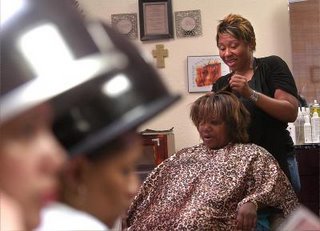Rezoning the Party
The fight for suburban votes this fall has begun to skew traditional party allegiances, especially for urban African-Americans. In Maryland, the Democratic candidates for statewide office hail mostly from suburban Montgomery and Prince George counties, adjacent to Washington, D.C. Even the Dems man for governor, Baltimore Mayor Martin O'Malley, says a local free weekly, The Gazette, "has practically earned frequent-flier miles touting his roots in voter-rich Montgomery." The party has been drawn by more than votes. The wealthy suburbs have more cash, which in the television era has replaced ward-by-ward organization that used to win elections.
For African-Americans, who have been Democratic mainstays for generations, picking a mostly suburban (and mostly white) slate seems like a betrayal. "The Democratic Party, despite all of its claims of being inclusive and liberal, has left its principal group of voters behind," former Prince George’s county executive Wayne K. Curry told the Gazette.
For African-Americans, who have been Democratic mainstays for generations, picking a mostly suburban (and mostly white) slate seems like a betrayal. "The Democratic Party, despite all of its claims of being inclusive and liberal, has left its principal group of voters behind," former Prince George’s county executive Wayne K. Curry told the Gazette.




